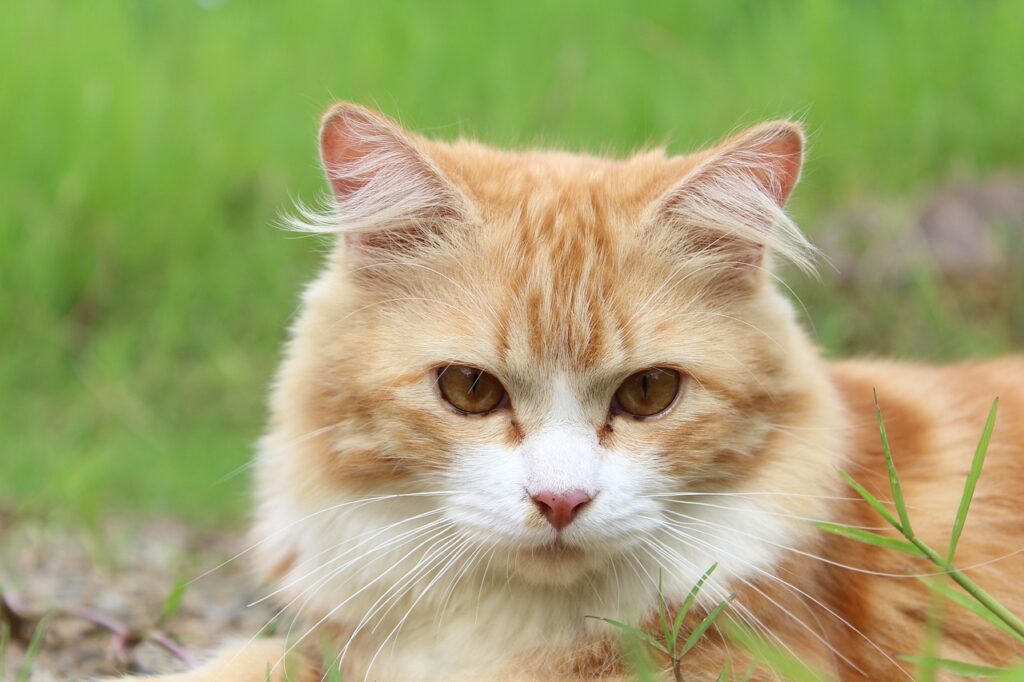Can Cats Eat Raw Meat? – Yes, They can
Cats are natural carnivores, which means their bodies are designed to handle and process raw meat. Feeding your feline friend raw meat can emulate their ancestral diet, giving them access to nutrients in their most natural form.
Can Kittens Eat Raw Meat?
Yes, kittens can eat raw meat, but it is essential to proceed with caution. Kittens have developing digestive systems and are more susceptible to bacteria found in raw meat than adult cats. Therefore, it’s critical to provide high-quality raw meat and introduce it slowly into their diet.
Things to consider when feeding raw meat to kittens?
Before introducing raw meat to a kitten’s diet, it’s important to consider their age, health, and vaccination status. Practicing good hygiene and sourcing meat from reputable suppliers can minimize the risks associated with raw feeding. Always consult with a veterinarian to ensure the kitten’s nutritional needs are met.
Nutritional Benefits of Raw Meat for Cats – Why Raw Meat is good for Cats?
High Protein Content
Raw meat is packed with protein, which is vital for maintaining a cat’s muscle structure and overall health. As obligate carnivores, cats require a large amount of protein in their diet.
Essential Amino Acids
Raw meat provides all the essential amino acids cats need. Taurine, for example, is crucial for heart, vision, and reproductive health, and is naturally found in raw meat.
Natural Enzymes
Raw meat contains natural enzymes that aid in digestion and reduce the burden on the cat’s digestive system, potentially improving gut health.
Real-World Texture
Chewing raw meat can improve a cat’s dental health by mechanically cleaning teeth and supporting healthy gums.
Freshness Factor
Raw meat doesn’t contain preservatives or artificial flavorings, making it a fresh, clean source of nutrients without unnecessary additives.
Potential Allergies: Can Cats Be Allergic to Raw Meat?
While rare, cats can develop allergies to proteins found in raw meat. If this occurs, it usually manifests after repeated exposure to the allergen over time.
Symptoms of Raw Meat Allergies in Cats
- Gastrointestinal Distress: Look for vomiting or diarrhea which can indicate an adverse reaction to raw meat.
- Skin Irritations: Noticeable itching, redness or hair loss could be a sign of an allergy.
- Respiratory Issues: Pay attention to any coughing, wheezing, or difficulty breathing after consuming raw meat.
What to Do If Your Cat Shows Symptoms?
- Immediate Veterinary Care: Seek professional help to get a proper diagnosis and treatment.
- Elimination Diet: Work with a veterinarian to identify the allergen and modify the cat’s diet accordingly.
- Preventive Measures: If an allergy to a specific meat is identified, avoid it in the future and select alternate protein sources.
Recommended Amount: How Much Raw Meat Can a Cat Consume?
Amounts can vary based on the cat’s weight, activity level, and individual health needs. As a general guideline, raw meat should consist of no more than 10% of a cat’s total daily intake for snacks, with a balanced diet ensuring all nutritional requirements are met.
Things to Consider When Feeding Raw Meat to Cats
Consider potential bacterial contamination, ensure the meat is fresh, provide a balanced diet, and be aware of the cat’s specific tolerances and preferences. Always observe your cat after introducing new food items into their diet.
How to Feed Raw Meat to Cats: A Quick Guide
Feeding your cat raw meat can be done safely with proper preparation and knowledge. Below are a few recipes that outline how to incorporate raw meat into your cat’s diet.
Basic Raw Chicken Dice
Begin with boneless, skinless chicken breast. Cut into small, bite-sized pieces suitable for your cat’s size. Serve as a treat or part of a meal.
Simple Ground Beef Mix
Select lean ground beef, and thoroughly mix with a small amount of cat-safe raw liver. Form into small, easy-to-eat portions for your cat to enjoy.
Raw Turkey and Fish Delight
Combine finely chopped raw turkey with a bit of raw, deboned salmon. Remember to source your fish from a trusted supplier and freeze beforehand to reduce the risk of parasites.
Conclusion
Raw meat can be a part of a healthy diet for cats when handled and prepared safely. Always prioritize quality and freshness, consult with a veterinarian for personalized advice, and monitor your cat’s health consistently when introducing new foods.



